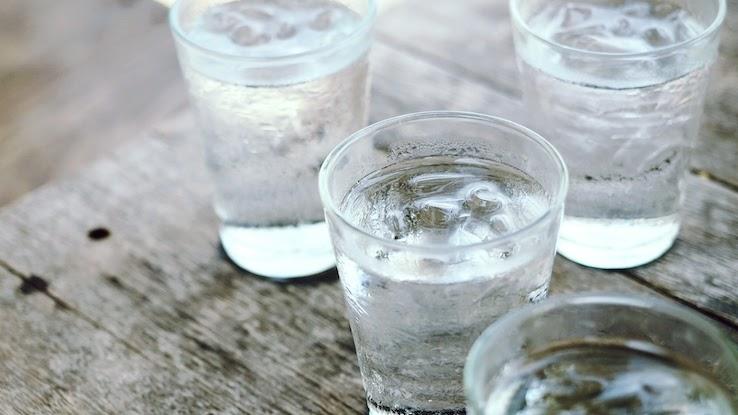
You’ve likely heard about how great water is for your body and how you should be drinking lots of it every day. However, even when it comes to water, too much isn’t always a good thing. Drinking more water than your body can handle can have serious side effects that can lead to major health complications and even death. Learn more about water intoxication and the dangers of overhydration to understand how to prevent this condition and what to look out for.
What Is Water Intoxication?
Water intoxication — also known as overhydration, water toxemia, water poisoning and hyponatremia (low blood sodium) — is a physical condition that can occur when you develop an electrolyte imbalance in your body due to excessive water intake. This imbalance between water and electrolytes causes your cells to swell up, leading to a very dangerous situation. The swollen cells in your brain can create pressure inside your skull. As this pressure increases, the blood flow to your brain can be interrupted, which might lead to dysfunction in your central nervous system, seizures, coma or even death.

What Are the Risk Factors for Water Intoxication?
Typically, water intoxication happens when someone drinks too much water over a short period of time. This dangerous condition is often observed after water-drinking contests where contestants are challenged to drink excessive amounts of water without urinating. However, it has also been reported to occur over longer periods of time. In addition to excessive water intake, most documented cases of water intoxication also involve people’s bodies secreting more of an antidiuretic hormone called vasopressin. Vasopressin tells your kidneys to reabsorb water, and its levels in your body increase during intense exercise or other physical stress.

Even though drinking too much water is the main cause of this problem, there are also some medical conditions, physical conditions and lifestyle choices that may increase your risk of water intoxication. These conditions include:
- Kidney or liver disease, syndrome of inappropriate antidiuretic hormone (SIADH), uncontrolled diabetes and heart failure. With each of these conditions, your body’s ability to excrete water is impaired, making water intoxication more of a likelihood.
- Age. Many older adults have lower amounts of sodium (an electrolyte) in their blood, so the risk of an electrolyte imbalance increases. Additionally, infants who drink too much water or diluted formula can develop water intoxication.
- Hormonal changes. Certain changes in the adrenal glands, such as Addison’s disease, can cause electrolyte imbalances. Low thyroid hormone levels can result in low sodium levels.
- Severe vomiting or diarrhea. The extra loss of fluids and electrolytes and increased levels of vasopressin can elevate your risk of developing an electrolyte imbalance.
- Diet. A low-sodium diet also increases the risk of an electrolyte imbalance.
- Drugs. Thiazide diuretics and certain pain medications and antidepressants may cause increased urination or sweating. MDMA, also known as ecstasy, can also increase the risk of overhydration.
- Changes in climate. Moving to or visiting a much hotter climate than you’re used to can increase sweating and your risk of an electrolyte imbalance.
- Psychogenic/primary polydipsia. The persistent sensation of thirst in the absence of physical stimuli is often observed in individuals who have psychiatric disorders, such as schizophrenia, and can result in overhydration.
In addition to these risk factors, people who compete in endurance sports or who work outdoors in hot temperatures are also at a higher risk of experiencing water intoxication. These people are prone to losing more sodium through perspiration. As athletes or workers drink large amounts of water to rehydrate themselves, they typically are unable to restore the level of sodium needed in their bodies to keep a proper balance, leading to hyponatremia.
Symptoms to Watch Out For
The key symptoms of overhydration include:

- Fatigue
- Headache
- Confusion
- Nausea
- Vomiting
- Swelling of extremities
- Irritability
- Restlessness
- Muscle spasms or cramps
- Seizures
- Unconsciousness
In severe cases, overhydration can also lead to coma or death. It’s very important to be aware of these symptoms, particularly if you’re at a higher risk of developing this condition.
Treatment Options for Overhydration
For mild hyponatremia, drinking fewer fluids for a bit is often sufficient to resolve the condition. Eating a small amount of salty foods can also be helpful if you’ve lost excessive electrolytes from sweating. Keep a close eye on your symptoms to make sure that they don’t worsen.

With more severe cases of hyponatremia, you may need to take medications to offset the feelings of nausea and headaches. If your symptoms worsen, you may need to visit the hospital to receive intravenous (IV) fluids to rebalance the electrolyte levels in your body.
Chronic cases of hyponatremia may require hormone therapy, depending on the causes of the condition. In some cases, hormone replacements can work to keep your electrolytes balanced.
Preventing Water Intoxication
The easiest way to prevent overhydration is to only drink as much water as you need. That amount will vary depending upon the amount of exercise or the physical activities you participate in and whether you have any conditions that increase your risk of water intoxication. However, in general, you can monitor your urine color to determine your hydration level. Pale yellow urine usually indicates that you’re drinking enough water, whereas a darker yellow means that you need more water.

If you’re participating in an endurance sport, like a marathon or triathlon, focus on only drinking as many fluids as you lose due to perspiration during the competition. Consider drinking sports drinks that contain electrolytes or adding electrolytes to your water during training and racing. These same methods apply if you work outdoors in high-heat conditions.
If you have a medical or physical condition that puts you at risk for overhydration, make sure you get proper treatment. Take your medications as directed to avoid this issue.
When Should You See a Doctor?
If you experience mild but chronic hyponatremia, ask your doctor if there are any changes you can make in your diet or medications to reduce your symptoms. You may also want to see an endocrinologist about possible hormonal imbalances that could be causing your symptoms.

See a doctor if you experience severe symptoms associated with water intoxication. If any of the symptoms become extreme or intolerable or if you have seizures or fear that you may lose consciousness, seek medical assistance immediately.
Resource Links:
https://www.mayoclinic.org/diseases-conditions/hyponatremia/symptoms-causes/syc-20373711
https://www.ncbi.nlm.nih.gov/books/NBK537231/
https://toxedfoundation.org/water-intoxication-dilutional-hyponatremia/
https://www.merckmanuals.com/home/hormonal-and-metabolic-disorders/water-balance/overhydration
https://www.gundersenhealth.org/health-wellness/eat/are-you-over-hydrated/
https://jcp.bmj.com/content/56/10/803.2.full
https://www.stlouischildrens.org/health-resources/pulse/water-intoxication-infants
http://chemocare.com/chemotherapy/side-effects/electrolyte-imbalance.aspx





